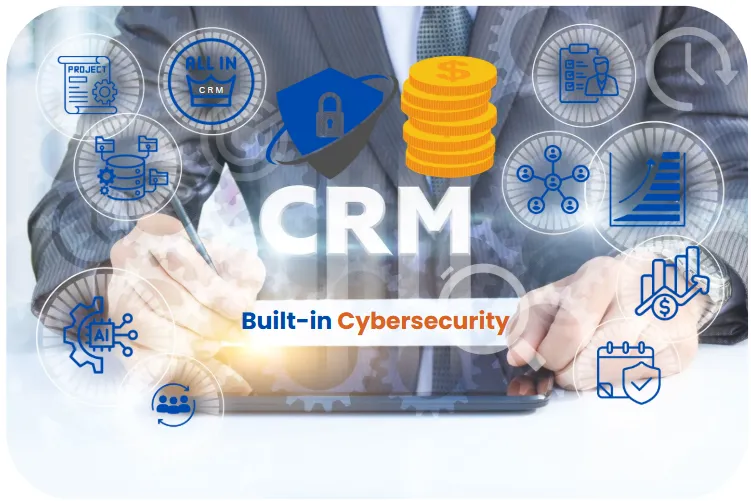
The Cost of a Data Breach: Why Cybersecurity-First CRMs Are a Game Changer
A data breach can do more than just steal your business’s information, it can steal your future. For small to mid-sized businesses, the average cost of a data breach in 2024 reached $3.31 million, according to IBM’s latest report. And the damage goes far beyond financials: reputations are ruined, customers walk away, and compliance violations can bring on legal consequences.
Yet, many businesses still rely on CRMs that prioritize sales features over cybersecurity. In a world where digital threats are growing more sophisticated by the day, this is a critical mistake. It’s time for a shift, cybersecurity-first CRMs are no longer a luxury; they’re a necessity.
The True Cost of a Data Breach

Let’s break down what’s really at stake:
1. Financial Losses
From operational downtime and lost sales to regulatory fines and customer compensation, the immediate impact can cripple cash flow. For many small businesses, one breach can be a death sentence.
2. Loss of Customer Trust
81% of customers say they would stop engaging with a brand online after a data breach (Salesforce, 2023). Once trust is gone, it’s difficult and expensive to win back.
3. Compliance Penalties
Regulations like GDPR, HIPAA, and CCPA hold businesses accountable for how they store and protect personal data. Breaches often result in steep fines or legal action.
4. Recovery Time
The average time to identify and contain a breach is 207 days. During that time, your operations, growth, and customer service suffer.
Why Traditional CRMs Fall Short
Most CRMs are designed with sales and marketing automation in mind, not security. They focus on lead generation, pipeline tracking, and integrations, often leaving critical gaps in:
Encryption and data protection
Access control and authentication
Real-time threat detection
Automated backups and recover
These vulnerabilities create easy targets for attackers looking to exploit weak links in small business tech stacks.
What Makes a Cybersecurity-First CRM Different?

Cybersecurity-first CRMs are built from the ground up with data protection as a core feature not an afterthought.
Key Features Include:
✅ End-to-end encryption to protect data in transit and at rest
✅ Multi-factor authentication (MFA) to verify user identity
✅ Role-based access control to limit data exposure
✅ Real-time activity logging and monitoring
✅ Automated security updates
✅ Built-in compliance tools for GDPR, HIPAA, CCPA, etc.
These platforms offer proactive defense mechanisms that keep evolving with the threat landscape ensuring your customer data, sales intel, and internal communications stay protected.
Real ROI: Why Security-First Tools Are Worth It

Many business owners worry about the price tag of secure platforms. But when compared to the potential cost of a breach, the investment pays for itself.
A secure CRM:
Prevents financial and legal fallout
Builds customer trust and loyalty
Ensures compliance with changing regulations
Minimizes downtime and operational risk
Think of it as cyber insurance in the form of smarter software.
Final Takeaway: Security Is the New Selling Point

In today’s market, your customers care deeply about how you handle their data. Offering strong security isn’t just about risk prevention, it’s a competitive advantage.
Cybersecurity-first CRMs empower your team to grow the business without compromising safety. In an age of increasing digital threats, it’s not just smart; it’s essential.
Ready to Upgrade to a Security-First CRM?
If your current CRM lacks strong cybersecurity features, now’s the time to reassess. The cost of doing nothing is far greater than the investment in doing it right.
